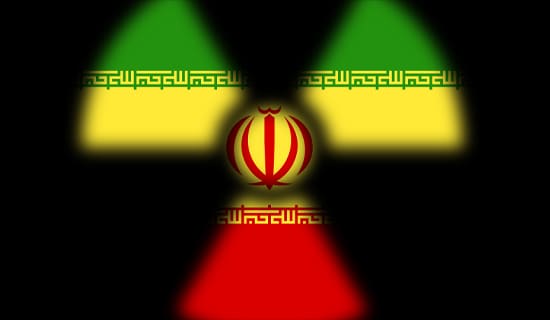In an article she published in the London-based Saudi daily Al-Quds Al-Arabi, Ibtihal Al-Khatib, a Kuwaiti journalist and a professor of English Language and Literature at Kuwait University, came out against the legality of polygamy in Arab and Muslim countries. She addressed the issue in the context of a special permit granted by the Kuwaiti government to polygamous men during the coronavirus crisis. The government permitted such men to divide their time between their wives, despite the strict lockdown that had been imposed in the country.[1] Al-Khatib justified this decision by the government as a reasonable solution to a problem, but claimed that it would have been better if the state had outlawed polygamy in the first place.
In a civil state, she argued, legislation must be based on equality between the genders, so that whatever it permitted to the man is also permitted to the woman. But since custom and tradition rule out polyandry, the principle of equality entails that polygamy must be banned as well. She added that the polygamy causes more harm than good, since it is a source of strife within families that lasts for generations and often ends up in court. Hence, she said, countries would do good to follow the example of Tunisia, which banned polygamy precisely for these reasons.

Ibtihal Al-Khatib (source: Facebook.com/133802209980190)
The following are translated excerpts from her article: [2]
"Since Kuwait imposed a complete lockdown on May 10, [2020], an ‘unusual’, but serious, problem arose for men with multiple wives, especially for those who keep it a secret. They thought they had to choose one of their homes and stay there for the duration of the lockdown. The Kuwaiti government addressed this problem, and allowed the husband to choose two days a week to visit his other home, and announced that ‘the address of the [second] wife would be permanently registered in future permits.’ There were unusual debates on this matter, and there were probably jokes about the division of days and about the probable exposure of many couples and what this exposure would do to them…
"But jokes aside, the Kuwaiti government was right to address [the problems posed by] this complicated family situation during lockdown and to approve flexible solutions to handle its implications. Some thought that granting this permission to polygamous husbands risked spreading the disease. However, the debate should not be about whether the government’s decision was correct or not, because the government permits polygamy to begin with and its legal code facilitates it, and therefore the government must cope with its implications. These implications caused courts to be flooded with lawsuits and homes to be filled with problems even before the coronavirus crisis. But later, during the crisis, a rift formed within many families, [harming] the natural relations within them, and the Kuwaiti government… was forced to deal with the consequences.
"This social crisis, which materialized in all the Arab and Muslim countries that permit polygamy, in some form or other – and Kuwait is only [one] example of this – once again gave rise to the question of whether states are entitled to ban polygamy by law, i.e., to prevent it, as is done in some countries of the Arab Maghreb [North Africa].
"In my opinion, if the family structure… is acceptable to all the relevant parties – assuming that [polygamy] is a purely human and uncontroversial right – then the parties cannot be banned from [contracting such a marriage]. But things are not that simple, and every legal consideration is offset by another legal consideration… and this must be taken into account, for otherwise, laws will become discriminatory and deficient. [So] how do [various] considerations come into the issue of polygamy?
"First, in a civil state, legislation must not be linked to gender… except in rare cases. [So] if the man is permitted to create a family according to his will, other sectors of society must be granted the same right, and purely from the perspective of fair civil legislation, the woman must be granted the right to take multiple [husbands as well]. But since that [option] is clearly reprehensible according to people’s religious, social and cultural [norms] – except in a handful of god-forsaken societies – it means that the man cannot be granted a right that a woman cannot be granted in the same manner and to the same degree.
"True, all legislation, even in its purest civil and secular [form], is affected by the customs, traditions and religious interpretations that shape the life of society, whether the legislator likes it or not. Still, these aspects are not supposed to constitute the major consideration in legislation, to the extent that they overshadow people’s rights and the value of complete equality among them. What cannot be legislated regarding the woman must not be legislated regarding the man, except, of course, in biological matters that cannot be changed, such as pregnancy and childbirth, which sometimes require special laws…
"Second, legislation must take into account the cost and benefit of a given law. This was the consideration presented by Tunisia, for example, when it revoked the law permitting polygamy.[3] When the [Tunisian] government was confronted with the argument that [banning polygamy] may cause men to engage in [religious] violations and sins, it replied that the duty of the government was to protect people in this life, not to [save them] from hellfire [in the next]. The government is an earthly institution that regulates people’s earthly lives, prevents them from being cruel to one another and treats them according to the civil [principle] of equality. Anything beyond this falls under the purview of the individual, not of a civil institution like the government. Moreover, polygamy causes many problems that bring families to court and create hostility and hatred among half-brothers and half-sisters, [hostility and hatred] that last generations and divide families… If memory serves, that was one of the arguments of the Tunisian government. For polygamy brings in a second wife, who shares the first wife's home, as well as her money and the rights of her children. The Tunisian government believes it has a duty towards the woman and her children as citizens, and that this is part of the role of the state. However, it does not regard itself responsible for preventing men from violating the laws of Islam, for that is the personal responsibility of the individual.
"But since [Kuwait and other Muslim countries] permit polygamy by law, they must [also] deal with its implications during a terrifying global crisis like the one we are currently experiencing. Hence, states where polygamy is allowed must take the situation into consideration and grant special [permissions], even if this raises the risk of spreading the disease. The state must grant these permissions because it is the one that allowed this behavior [of polygamy] to begin with.
"But the best and fairest thing would have been to refrain from legitimizing [polygamy] based on custom, tradition or some religious interpretation. [Because], beyond the fact that [legitimizing it] is not a civil act, it creates very complicated social and human circumstances that will require further legislation in the future… and solutions even stranger and more convoluted [than the problems].
"From a legal perspective, the inclination is always to pass laws that grant people the freedom to choose their lifestyle and the structure of their families… But this must not be done in ways that create discrimination based on gender, race, religion or any other physical or ideological factor. [Moreover, the law] must not cause people and society more harm than good. This is undoubtedly a difficult equation, but a stable civil state can arise only if it establishes this [equation]."
[1] See e.g. Al-Khalij (UAE), May 18, 2020; Twitter.com/Almajlliss, May 17, 2020.
[2] Al-Quds Al-Arabi (London), May 21, 2020.
[3] Tunisia, which officially banning it upon receiving independence in 1956, was the first Arab country to outlaw this practice and is still one of the only Muslim majority countries that do so.





